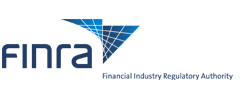
FINRA Expels Maximum Financial for Net Capital, AML, Other Violations While Engaging in Retail Foreign Currency Exchange Business
CEO Barred as a Principal, Suspended for Nine Months in All Capacities
Washington, D.C. — The Financial Industry Regulatory Authority (FINRA) announced today that it has expelled Maximum Financial Investment Group, Inc. of Southfield, MI, for violations arising out of its retail foreign currency (forex) business, as well as for repeated violations of FINRA registration and related rules.
FINRA also permanently barred Maximum's Chief Executive Officer and Chief Compliance Officer, Christopher T. Paganes, from ever serving in any principal capacity at a securities firm and suspended him from associating with a securities firm in any capacity for nine months. No fine was imposed because Paganes evidenced an inability to pay.
"The growing retail foreign currency market presents significant risks to individual investors," said Susan L. Merrill, FINRA Executive Vice President and Chief of Enforcement. "Firms that participate in forex activities must be diligent in adhering to all applicable rules in order to protect their customers' financial interests. The failures of Maximum and its CEO to comply with net capital, customer protection and anti-money laundering rules exposed customers to unnecessary risks."
FINRA found that in September 2007, Maximum entered into an agreement with a non-registered entity — Boston Trading & Research (BTR) — to engage in a retail forex trading business. Maximum agreed to act as a counterparty to the forex transactions. Beginning in January 2008, and continuing through May 2008, more than $15 million in customer funds to be used for retail forex transactions were deposited in Maximum's bank accounts. The receipt of these funds created a liability for Maximum, which it failed to record on its own books and records. This failure led to the firm having insufficient minimum net capital, in violation of federal securities laws and FINRA rules. The firm also failed to calculate the amount it had to deposit on behalf of the forex customers in a reserve bank account to safeguard the funds. In addition, FINRA found that Maximum failed to establish systems and procedures to monitor for money laundering while engaging in the forex transactions.
FINRA also found that on three occasions, Maximum failed to timely file an application for approval of a material change in its business. First, the firm did not file an application prior to engaging in the forex business, which constituted a material change of business operations requiring FINRA approval. Second, over a two-month period, Maximum increased the number of its representatives working at the firm by 180%. Despite being repeatedly told by FINRA that an application for approval of such an increase had to be submitted 30 days before the change, Maximum did not file its application until seven months after the firm had already hired the new representatives. Despite being alerted that FINRA intended to bring disciplinary action against the firm for not timely filing the application, Maximum allowed the representatives to remain at the firm for another two months. Finally, Maximum failed to file an application with FINRA before transferring 100 percent of its assets to another FINRA registered broker-dealer.
In settling this matter, the firm and Paganes neither admitted nor denied the charges, but consented to the entry of FINRA's findings.
Investors can obtain more information about, and the disciplinary record of, any FINRA-registered broker or brokerage firm by using FINRA's BrokerCheck. FINRA makes BrokerCheck available at no charge. In 2008, members of the public used this service to conduct 11.6 million reviews of broker or firm records. Investors can access BrokerCheck at www.finra.org/brokercheck or by calling (800) 289-9999.
FINRA, the Financial Industry Regulatory Authority, is the largest independent regulator for all securities firms doing business in the United States. FINRA is dedicated to investor protection and market integrity through comprehensive regulation. FINRA touches virtually every aspect of the securities business — from registering and educating all industry participants to examining securities firms; writing and enforcing rules and the federal securities laws; informing and educating the investing public; providing trade reporting and other industry utilities; and administering the largest dispute resolution forum for investors and firms.
For more information, please visit our Web site at www.finra.org.
